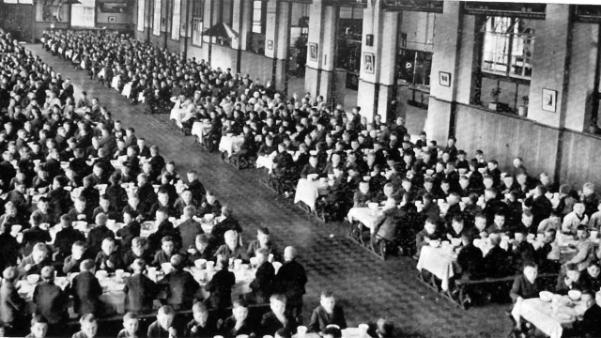Research impact
Social and cultural impact
 The digital project Industrial Memories has changed how people see historic abuse, so it is understood as an outcome of systemic failure, rather than “a few bad apples”. The digital humanities methodology underpinning this approach illustrates the value of digitising government reports, and shows how necessary system-wide analysis is to illustrate patterns of failure – such as transferring abusers, failing to respond to parents, and repeatedly refusing to acknowledge abuse.
The digital project Industrial Memories has changed how people see historic abuse, so it is understood as an outcome of systemic failure, rather than “a few bad apples”. The digital humanities methodology underpinning this approach illustrates the value of digitising government reports, and shows how necessary system-wide analysis is to illustrate patterns of failure – such as transferring abusers, failing to respond to parents, and repeatedly refusing to acknowledge abuse.
Building on this, Survivors’ Stories enables future generations to understand how it feels to be abused. This project worked with sixteen individuals over a year to preserve their memories in audio and print, adding a major new strand to the National Folklore Collection. The purpose of this project was to listen to survivors and, through listening, to heal some of their trauma. Survivors’ Stories was launched in May 2019 by the Minister for Children and Youth Affairs, Katherine Zappone, to mark the 10th anniversary of the Ryan Report. Dr Pine has since been invited onto the Board of the Christine Buckley Centre to continue working for survivors’ well-being.
Overall, the project illustrates how research methods focussed on subjective experience can have meaningful impact on an immediate community of survivors, while online digital resources and educational materials (including outreach in schools and lectures at regional history festivals) enable national and international impact. See the References section below for examples of media dissemination.
Academic impact
Industrial Memories uses leading-edge digital techniques to create a state-of-the-art way of analysing digital texts, which can also be used to investigate other government reports internationally. The combination of this digital approach with a deep humanities methodology has impacted researchers in the fields of Child Abuse, Digital Humanities, Folklore, Memory, and Irish studies. Dr Pine and her team have lectured on the project’s methodology in Ireland, Germany, Singapore, Spain, the US, Canada, and Australia. The project has shown how a sensitive and responsive methodology can benefit a range of stakeholders. Crucially, this interdisciplinary project shows the value of combining researchers’ skills across these fields.
Training impact
The methods and outputs of the project have also made an impact in the classroom. In Claregalway Educate Together School, Transition Year students made and exhibited art projects based on Industrial Memories, helping them to understand how much the incarcerated children suffered. The students commented that “they never learnt about any of this in their history classes”. In UCD, students in the Schools of English, Drama and Film, and Computer Science, have studied digital humanities methods together, illustrating how a combination of computational tools and critical thought skills are vital to students from across the university.
Political impact
In 2018, and on foot of Industrial Memories, Dr Pine was invited to advise Minister Katherine Zappone, the Minister for Children and Youth Affairs, with responsibility for dealing with institutional legacies, on how to use the arts to respond to Ireland’s dark history. One of the key insights of Dr Pine’s project is the complex links between industrial schools, mother and baby homes, and Magdalen laundries, illustrating the intersectional nature of institutional history. The utility of the Industrial Memories methodology has further come to the attention of the Taoiseach, as a template for dealing with future government reports.